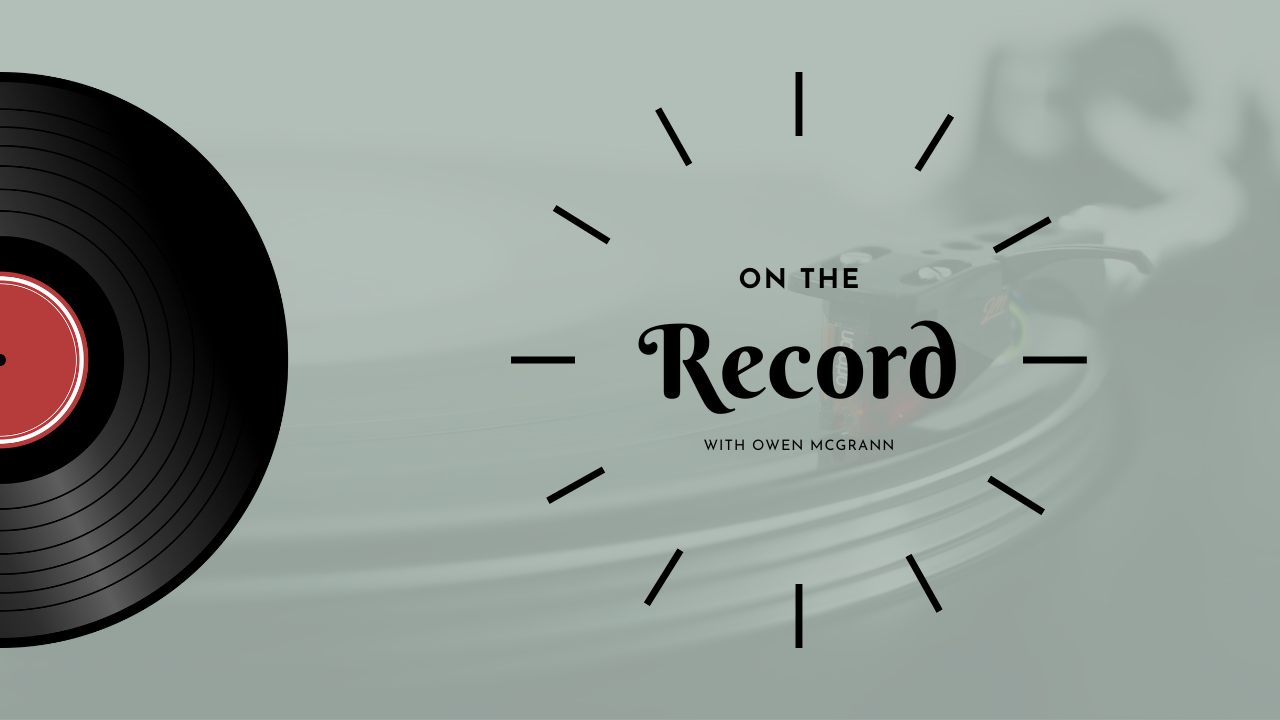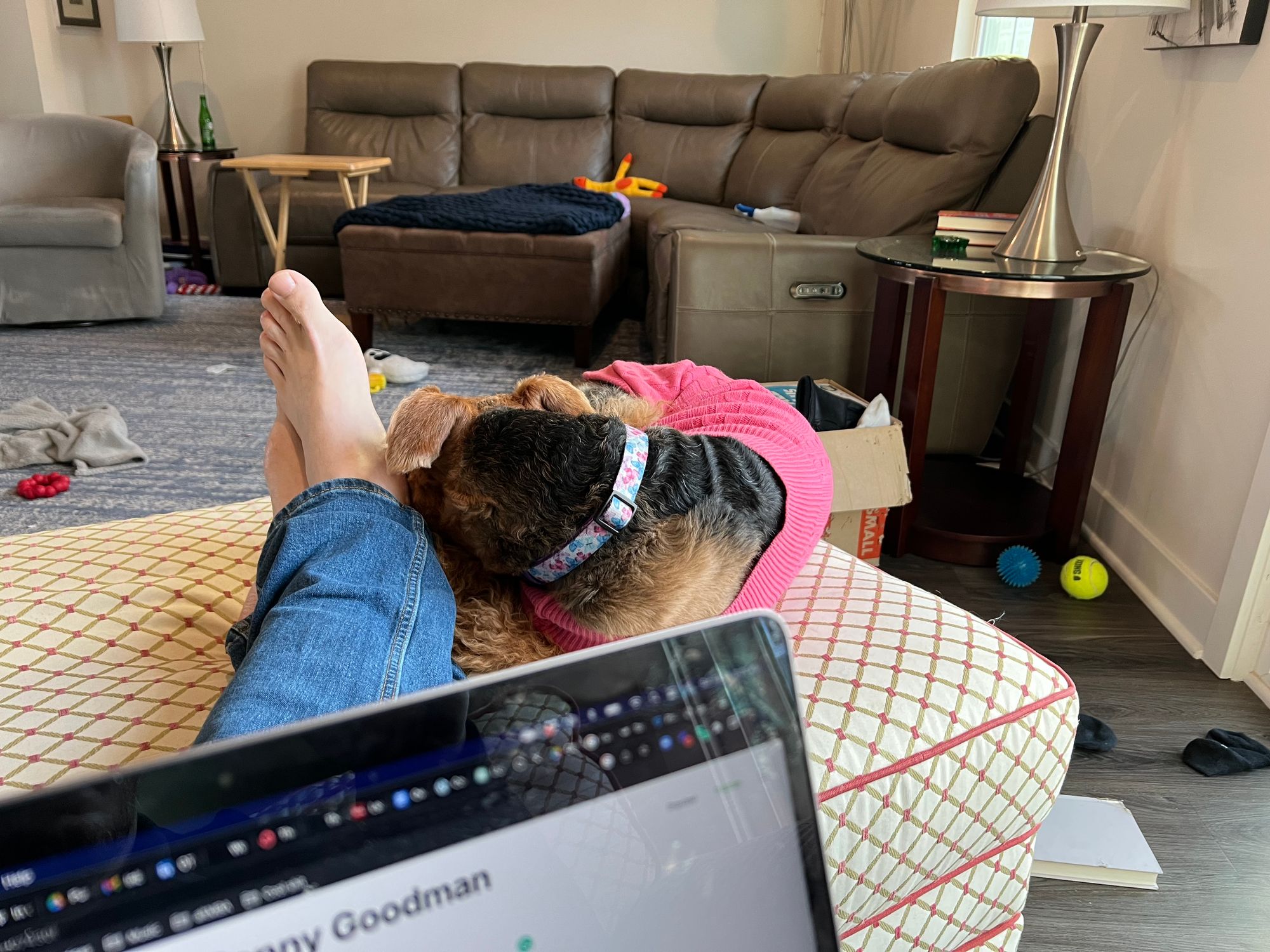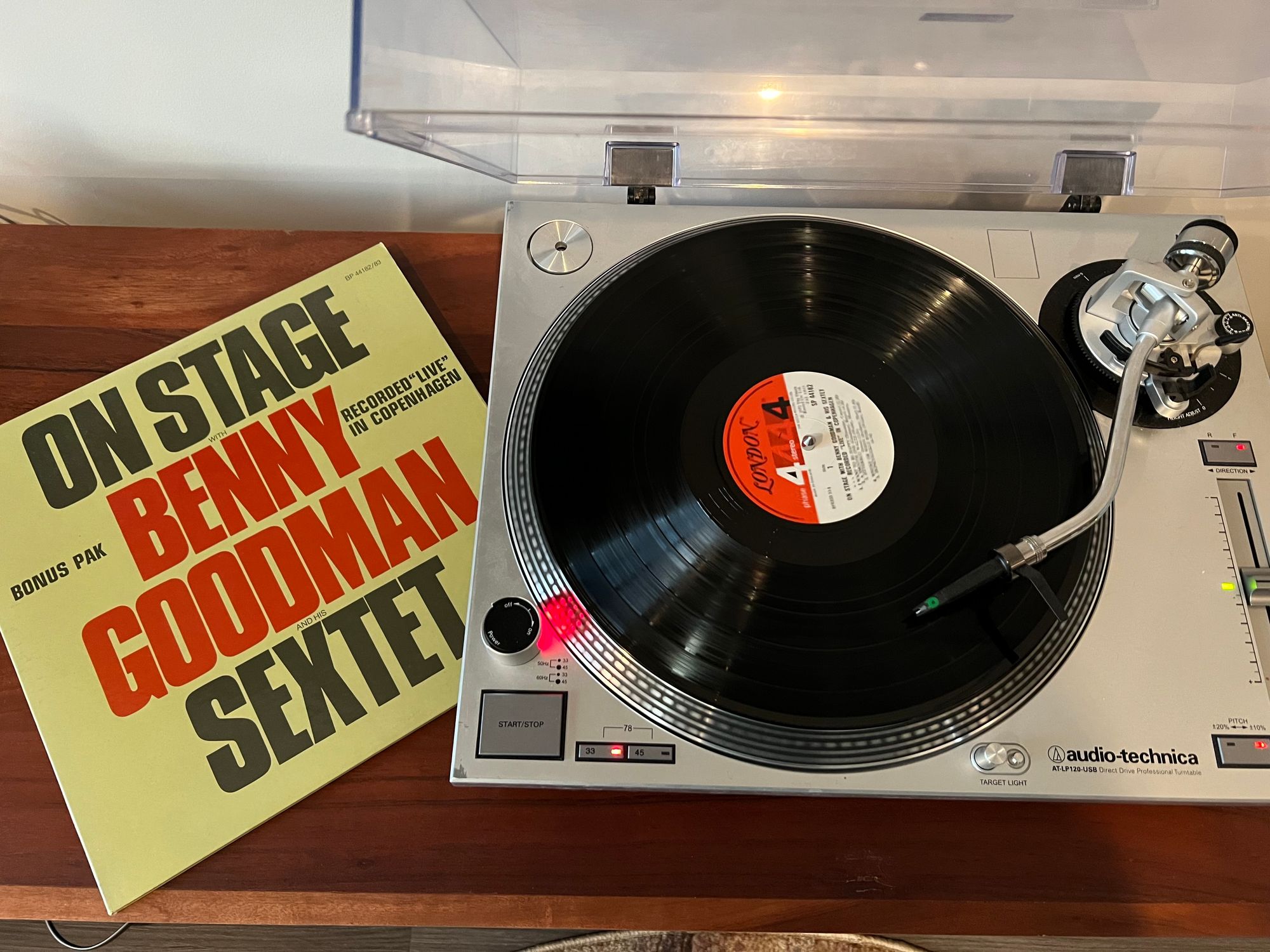OTR, Take 17: Benny Goodman Sextet - On Stage (Copenhagen)

It's funny how we fall into obsessive action during the grieving period. Often, this occurs without the slightest conscious awareness of it; it just seeps into our behavior and can baffle those around us.
Winnie passed away three weeks ago and one of the ways my mind processed it was, "I wish I would have been better and taken her for more walks." When I look back on the OTR I wrote for her three weeks ago, I see the language embedded in the writing, "I took my final walk with my best girl." I told the story about how Winnie helped me learn to walk after my transplant and encouraged you to take the walk, always.
In the last three weeks, without fully recognizing it, I have been obsessed with taking Clare for long walks every day. Don't get me wrong: I've always walked my dogs every day. That's part of the human deliverables when you agree to get a dog. But I've been taking Clare on walks up to ten miles a day in the last three weeks. It's amusing how we subconsciously justify our obsessive behaviors to ourselves: the walks are good for me and for her; walks help me decompress and recharge; I'm more creative after taking walks; these walks help tame Clare's puppy energy.
All of those things are true.
All of those things are also rationalizations for my behavior, which is trying to somehow make up for not taking Winnie for enough, or long enough, walks.
Clare and I have walked through rainstorms, snow storms, crazy wind (I live at the highest point in Allegheny County, and the wind just rips around here), and icy conditions. This morning, I hit a limit and my hurt at not being able to power through the walk revealed the obsessive nature of the behavior to me.
It's four degrees Fahrenheit outside. It's a beautiful day with the sun, slightly muffled by a gauzy cloud cover, peeking through for the first time in a few days. From inside, it looked like ideal walking weather. But when Clare and I made it outside, her in her pink sweater and I bundled up for the cold, we only made it about a half mile before retreating home. The wind just brutalized us. She was too cold to keep going and is now happily warming herself at my feet.

As we stepped back into the house, there was a part of me that felt as though I was betraying Winnie. I'd given the USPS promise ("Neither snow nor rain nor heat nor gloom of night stays these couriers from the swift completion of their appointed rounds") to Clare and I feel that I must honor it not only for Clare but also for Winnie.
It's funny what grief takes, but it takes what it wants and there's not a whole lot you can do about it.
I inherited a bunch of my dad's records. My brother Conor took most of the rock records and I took most of the jazz and classical, and that means a lot of the records I have are my grandfather's.
My grandfather died when my dad was in college, of a cancer environmentally induced by his work in the steel industry. He was pretty young, in his early 60s. I never got the opportunity to meet him, but he has been a constant presence in my imagination. My grandma would tell me that I reminded her of him and the inability to know the man prompted another obsession of a sort, one that has fueled the inception of the novel I'm writing, Pennhollow.
Because I didn't know the man beyond a few core stories, I started making up stories about him. The records I inherited played a huge role in this myth-making. He loved him some Benny Goodman, Glenn Miller, and the other big band swing artists of his day, but he also had a few bebop records littered in his collection. Today, we think of all of this as "jazz" but there were huge cultural shifts involved in the move from swing to bop (there's a great track by Charlie Christian titled "Swing to Bop" – though the track was released in 1941, before bebop really became a thing).
Today's record is a live recording of the Benny Goodman Sextet, On Stage. I can't find this record on any of the streaming platforms ¯\_(ツ)_/¯

One of the things that we don't consider when reading novels is that there's a ton of world-building and research that has to go into them, separate and distinct from the "story" that is told. If a writer is doing his or her job, the world of the novel becomes so engrained in your experience that it seems natural: real, visceral, tangible. The closer to contemporary life, the easier it is to do that because we are all sharing a set of assumptions and lenses through which we process the world. But think about how quickly those assumptions and lenses age. How quickly things become dated. In music, it's easy to hear a drum sound and know immediately that it was recorded in the 80s (or the 60s or aughts).
When writing fiction that takes place in another era, you cannot rely on those shared understandings of how things are. You have to create the world. (This is one reason that historical fiction often ages better than fiction set in a present-world.)
And when you have to create the world, you have to immerse yourself in the world. You have to listen to the music, watch the movies, read the newspapers of the time. When the city the novel takes place in is a character in itself, you have to burrow into the changing dynamics of an industrial powerhouse, the local politics, city's sense of its place in the world. When most of the book takes place in the city's music scene – both the normal clubs and the after hour clubs – you have to do things like search out people's doctoral dissertations at universities to get an understanding beyond the superficial.
And you uncover things that feel both of another world and things that are so painfully current that it makes your head spin. Because, at heart, people are people and our motivations, vices, and better impulses remain consistent. We may be born into different circumstances and be burdened with different historical weights, but people are people in all of our glory and shame.
I'm not going to bore you too much with my research on the Pittsburgh music scene from the 30s to the 50s, but every time I listen to one of my grandfather's records, I think back to stories my grandma would tell about them going to the Hill's jazz clubs. For those of you who aren't familiar with Pittsburgh, the Hill District was a predominantly black neighborhood and one of the main arteries of jazz music in the US.
At the time, both live and recorded music was run through unions. (Among other things, Pittsburgh is one of the cradles of the US labor movement.) There were two chapters of the American Federation of Musicians: the Local 60 and the Local 471. The Local 60 came first (it was chartered in 1896) and limited its membership to white musicians. The Local 60 had a meeting hall, with a performance space where white musicians would gather to jam after their public shows.
The Local 471, as you have likely surmised, was open to members of all races and ethnicities. Its headquarters were on the Hill and also had a performance space where musicians would gather after hours to hang out and jam. White musicians were not just welcome, they were at home at the 471. The Musician's Club, which is what the Local 471 was called, features heavily in Pennhollow, and I like to imagine my grandparents enjoying a great jam there.
As far as Local 60 v. Local 471? I'll let you guess which had the better jams and helped usher in a revolution in jazz.
Member discussion